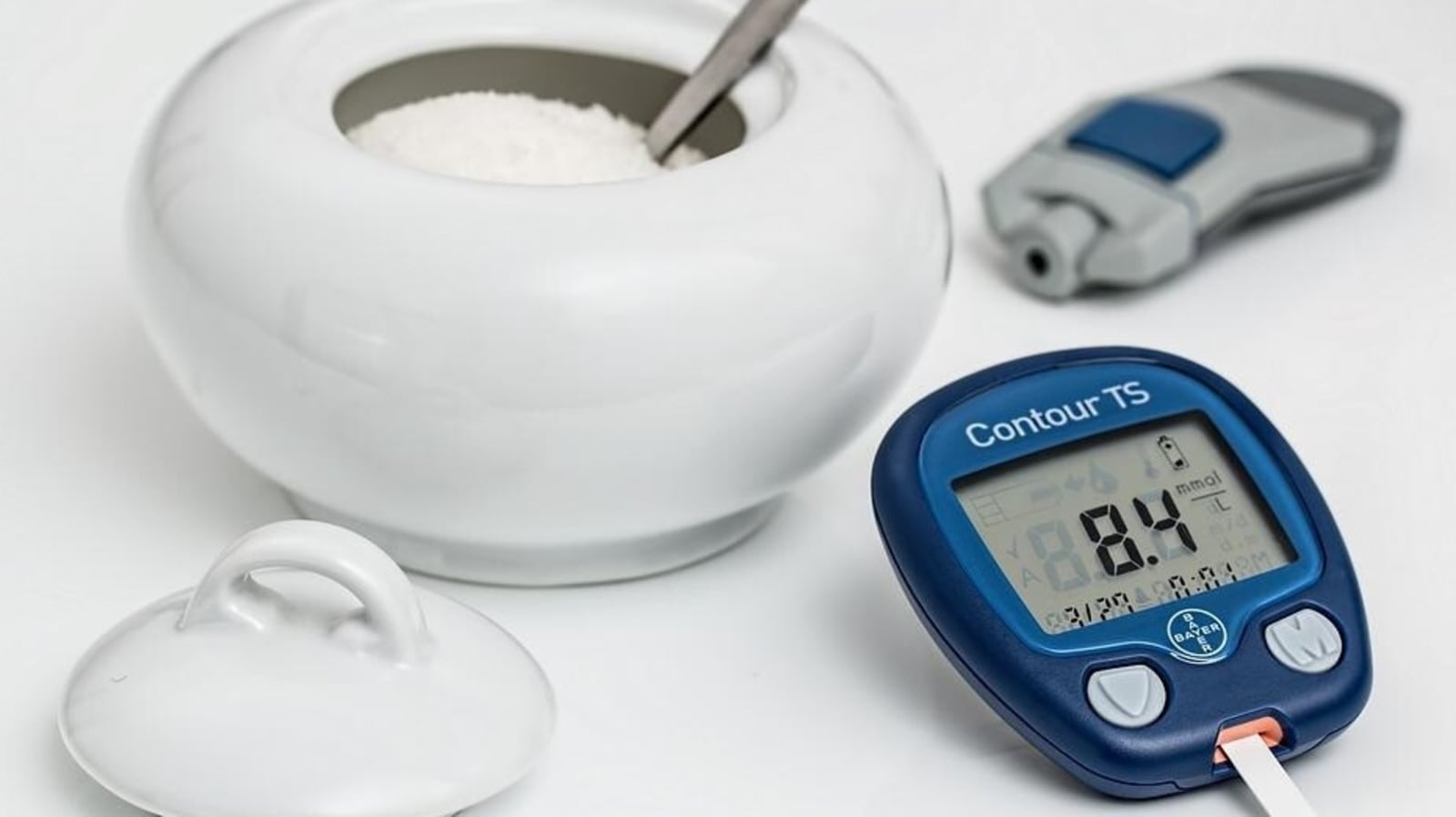
The first step is to cut down on packaged foods, which often contain a lot of sugar and less-healthy ingredients. Look for foods that include nutrient-rich whole grains, fruits, vegetables, beans, nuts and seeds.
Next, eliminate soda, sports drinks, many bottled juices, flavored coffee and tea and other sugary beverages. Replace them with water, 100% fruit juices and unsweetened tea or coffee.
Eat Regular Meals
It’s important to eat regular meals to keep your blood sugar in the target range. Eat a balanced diet that includes healthy carbohydrates (such as whole grains), lean protein, “good” fats and water. Be sure to check your portion sizes. One serving of food is 8 ounces (1 cup).
Carbohydrates directly affect your blood sugar level, while proteins and fats have less impact. Eat a variety of foods, but avoid highly processed (This link opens in a new window) foods that are high in sodium, sugar and saturated fat.
Aim to eat 3 to 4 small meals (up to 6 per day) spaced no more than six hours apart. Learn to count carbs and work with your doctor or dietitian to figure out the best way to do this.
Eat Smaller Meals
Glucose is the sugar in your blood that provides energy for the cells in your body. Keeping your blood sugars in the healthy range helps you have more energy and prevents health problems.
Eating small meals more frequently can help balance and control blood sugar levels. Smaller meals contain less glucose than larger ones and cause blood sugar to rise at a slower rate. This can be especially helpful for people with diabetes or hypoglycemia.
To maximize the benefits of eating smaller meals, make sure each meal and snack is well-balanced. Aim for a mix of carbs (fruit, vegetables and whole grains), protein and fats (like nuts or seeds) and fiber to keep your blood sugar levels stable. Using a blood glucose meter to track your blood sugar levels may also be helpful.
Exercise Regularly
Aerobic exercise, like walking, jogging and swimming, improves the body’s ability to use glucose for energy and decreases blood sugar levels. Exercise also reduces blood pressure and cholesterol, which is important for people with diabetes.
If you are starting to exercise, ask your doctor for the OK. They can check to see if your medications or insulin will affect your blood sugar level during and after exercise.
Be sure to drink lots of fluids during exercise to prevent dehydration. If you take insulin, always carry a small snack with 15 grams of carbs, such as a granola bar or glucose tablets, to avoid low blood sugar (hypoglycemia). It’s a good idea to test your blood sugar before exercising and every 30 minutes during a workout.
Take Glucose Tablets
Glucose tablets are a fast and reliable way to bring down low blood sugar levels. They are available at most drug stores or pharmacies, and typically come in a variety of flavors. Each tablet contains a precise dose of glucose, so you can be sure that you are taking the right amount of carbs to treat your low blood sugar.
Be sure to talk with your health care provider about how often you need to take glucose, including before and after exercise. They may also advise you to carry a source of fast-acting carbohydrate with you, like glucose tablets, juice box or a snack bag. It is also important to have a kit of injectable glucagon on hand. Speak with your doctor to see if one is appropriate for you, and make sure that family members and friends know how to use it.
Take Your Medicine as directed
Millions of Americans have prediabetes or diabetes, and keeping blood sugars within a healthy range will help prevent serious problems in the future. Blood sugar, also called glucose, is the body’s energy source and gets into the bloodstream from the foods we eat.
It’s important to check your blood sugar as often as your doctor recommends, especially before and two hours after meals. This will help you learn how food affects your blood sugar, and if you need to change your meal plan or insulin doses.
Stress, anxiety and depression can all cause a rise in blood sugar by triggering the hormone cortisol to increase. To avoid this, try relaxation techniques like meditation and stress management. Getting into a routine can also help. Checking your blood sugar at the same time every day, like right after breakfast, can help.